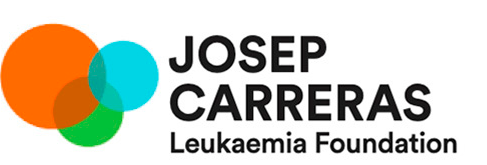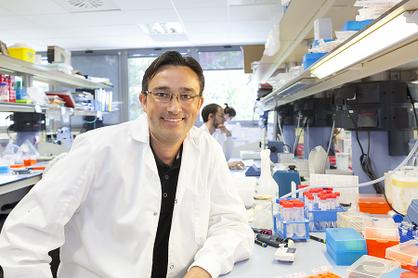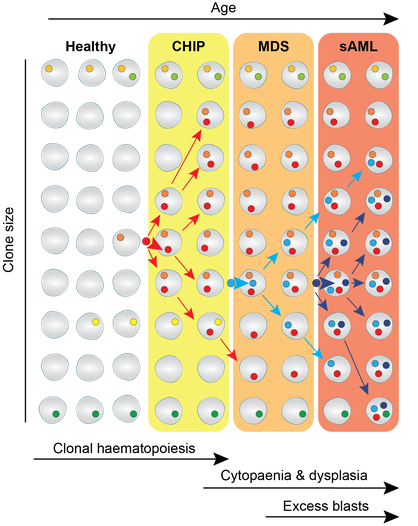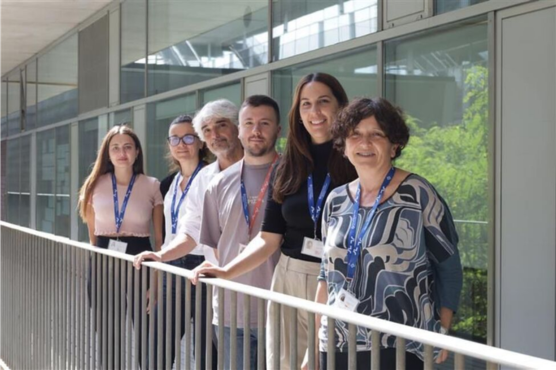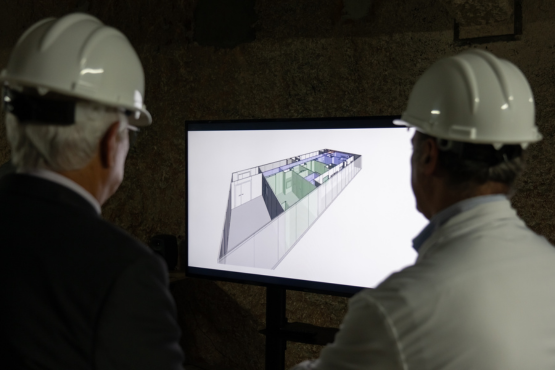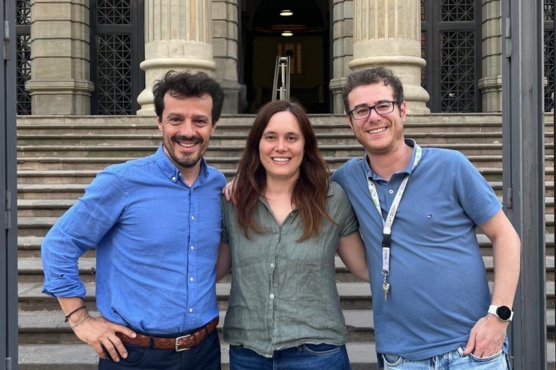►Dr. Marcus Buschbeck, group leader of the Josep Carreras Leukaemia Research Institute, coordinates the Innovative Training Network (ITN) INTERCEPT-MDS, a Marie Skłodowska Curie Action, funded by the European Commission under H2020 framework programme.
INTERCEPT-MDS intertwines 17 public and private centers from 7 countries to train 12 early-stage researchers (ESRs), at the PhD student level, with the aim to deepen on disease interception, a novel concept referring to the treatment of a disease before it fully develops by removing altered cells.
To make disease cell interception a reality, researchers need to overcome two key challenges: First, to identify few altered disease cells among many healthy ones. Second, the development of strategies that allow specific targeting of malignant cells without affecting healthy cells.
In the INTERCEPT-MDS ITN, Marcus Buschbeck and his colleagues propose to approach these challenges through shared research and multidisciplinary and multisectoral training of 12 ESRs. The project is aligned with overall goals of the EU LifeTime Initiative of which the Josep Carreras Leukaemia Research Institute is an associated partner.
With the aim to train and present Europe’s first experts in the new field of disease cell interception, the ITN will take advantage of single-cell omics methods that have reached a level of maturity to be applied to a broad-scale.
For interception, researchers will explore and exploit the epigenetic regulatory space by leveraging privileged access to tool compounds and by performing genetic loss-of-function screenings in vivo and in vitro. This project will focus on myeloid diseases because they are a suitable paradigm for clonally evolving conditions and come with a significant advantage. In contrast to most other diseases is the availability of stem cells, niche cells, and their progeny through samples of the clinical routine.
The Josep Carreras Leukaemia Research Institute will coordinate the network that includes as ESR-recruiting beneficiaries the Chemotherapeutisches Forschungsinstitut Georg-Speyer-Haus Stiftung and the Technischen Universität München from Germany, the Veterinärmedizinische Universität Wien from Austria, the Institut National de la Santé et la Recherche Médicale from France, the Università Degli Studi di Firenze from Italy, the Erasmus Universitair Medisch Centrum Rotterdam from The Netherlands, the Universitetet i Bergen from Norway as well as the companies Biobam Bioinformatics from Spain and the Müncher Leukämielabor GmbH from Germany.
Additional partners contributing to the research and training programme are the Universitat Autònoma de Barcelona, the management trainers from Leadership Sculptor GmbH, the biotech company Aelian Biotechnology from Austria, the patient support association Connaître et Combattre les Myélodysplasies from France, the Université de Paris, the University of Florida, the Universitätsklinikum Aachen from Germany and the genomic service provider GenomeScan B.V. from The Netherlands.
*This project has received funding from the European Union’s Horizon 2020 research and innovation programme under the Marie Skłodowska-Curie grant agreement No 953407

